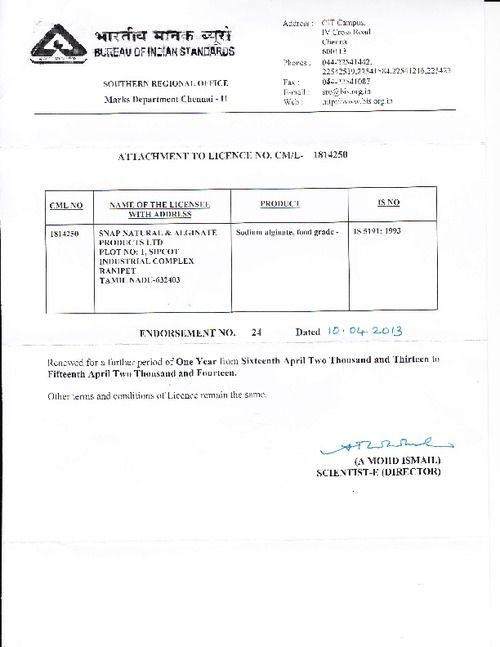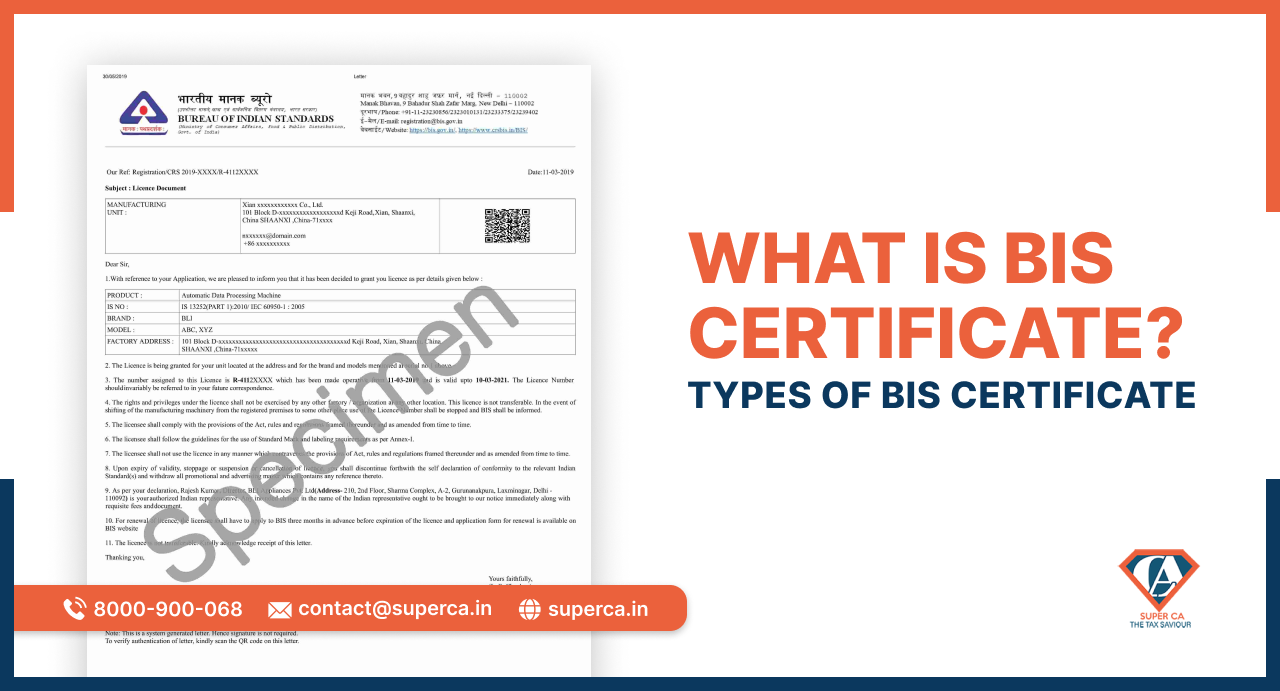Unlocking India’s Markets: Your Guide to the BIS Certificate (India) You NEED Now
Meta Title: BIS Certificate (India) Guide: Your Key to Indian Markets
Meta Description: Navigating the BIS Certificate requirements for India? This comprehensive guide explains everything you need to know, from product scope to application process, ensuring compliance and market access.
India is a vast and rapidly growing market, presenting significant opportunities for businesses worldwide. However, accessing this market requires navigating a complex regulatory landscape. One of the most crucial requirements for selling many products in India is the BIS Certificate (India). This guide provides a comprehensive overview of the BIS certification process, helping you understand its importance, identify if it applies to your products, and navigate the steps to obtain it.
What is the BIS Certificate?
The Bureau of Indian Standards (BIS) is India’s national standards body, established under the BIS Act, 2016. The BIS Certificate is essentially a license granted by BIS, allowing manufacturers to use the ISI mark (for Indian Standards) or the standard mark (for products covered under mandatory certification schemes). This mark signifies that a product conforms to the Indian Standards specified by BIS. The aim of the BIS certification is to ensure the quality, safety, and reliability of products sold in India, protecting consumers and promoting fair trade.
Why is the BIS Certificate Important?
Obtaining a BIS Certificate is not merely a formality; it’s a crucial step for several reasons:
- Market Access: For many product categories, the BIS Certificate is mandatory. Without it, you cannot legally import, manufacture, or sell your products in India.
- Consumer Protection: The certification ensures that products meet specific quality and safety standards, safeguarding consumers from substandard goods.
- Building Trust & Brand Reputation: The ISI mark is widely recognized and trusted by Indian consumers. Having the BIS Certificate enhances your brand’s credibility and builds consumer confidence.
- Legal Compliance: Failure to comply with BIS regulations can lead to penalties, product seizures, and legal repercussions.
- Competitive Advantage: Certification demonstrates your commitment to quality, potentially giving you a competitive edge over non-certified products.
Which Products Require BIS Certification?
The scope of products covered under the BIS certification scheme is extensive and is constantly expanding. It’s crucial to determine if your product falls under the mandatory certification list. Some common categories include:
- Electronics: Televisions, microwave ovens, mobile phones, power adapters, etc.
- Electrical Appliances: Switches, wires, cables, fans, etc.
- Household Items: Cement, steel, cooking appliances, etc.
- Toys: All toys sold in India now require BIS certification.
- Automotive Components: Tyres, batteries, etc.
Where to find the latest list: Consult the official BIS website (https://www.bis.gov.in/) for the most up-to-date list of products under the mandatory certification scheme. You can also search by product category or Indian Standard (IS) number.
Understanding the Certification Schemes
There are two main certification schemes under BIS:
- ISI Mark Scheme: This is the most common scheme, covering products that meet the Indian Standards.
- Registration Scheme: This scheme is for products that do not have an established Indian Standard but require registration to be sold in India.
The BIS Certification Process: A Step-by-Step Guide
The certification process can seem daunting, but understanding the steps involved can simplify the process.
- Identify the Applicable Standard: Determine the specific Indian Standard (IS) that applies to your product. This can be found on the BIS website or through a BIS-approved laboratory.
- Apply for Certification: Submit an application to BIS, along with the required documentation, including product specifications, factory details, and test reports. You can apply online through the BIS portal.
- Factory Inspection: BIS will conduct a factory inspection to assess the manufacturing process, quality control systems, and testing facilities.
- Product Testing: Samples of your product will be tested in a BIS-recognized laboratory to ensure compliance with the relevant Indian Standard.
- Grant of Certificate: If your product meets all requirements and the inspection is satisfactory, BIS will grant the certificate.
- Marking & Surveillance: You are then permitted to use the ISI mark on your product. BIS conducts periodic surveillance audits to ensure continued compliance.
Key Documents Required
The specific documentation requirements vary depending on the product and the certification scheme. However, some common documents include:
- Application form (available on the BIS website)
- Product specifications and technical drawings
- Manufacturing process flow chart
- Test reports from accredited laboratories
- Details of the factory and its facilities
- Quality control plan
- Company registration documents
Choosing a BIS-Approved Laboratory
Product testing is a critical part of the certification process. It’s essential to use a laboratory recognized by BIS. You can find a list of approved laboratories on the BIS website. Consider factors like:
- Accreditation: Ensure the laboratory is accredited by BIS for the specific IS your product falls under.
- Experience: Look for a laboratory with experience in testing similar products.
- Turnaround Time: Inquire about the laboratory’s turnaround time for testing.
- Cost: Compare the costs of testing from different laboratories.
Common Challenges and How to Overcome Them
The BIS certification process can present challenges, such as:
- Complex Documentation: Ensure all documents are accurate, complete, and in the required format. Consider hiring a consultant who specializes in BIS certification to assist with documentation.
- Factory Inspection: Prepare your factory thoroughly for the inspection. Ensure your quality control systems are robust and that your manufacturing processes comply with the relevant standards.
- Testing Failures: If your product fails the initial testing, identify the issues and make the necessary modifications. Retesting will be required.
- Time Delays: The certification process can take time. Plan accordingly and submit your application well in advance.
Case Study: The Success of [Company Name]
[Insert a brief, hypothetical case study here. For example: “A company manufacturing LED lighting initially struggled with the BIS certification process due to incorrect documentation. However, after consulting with a BIS certification expert and making the necessary adjustments to their product and factory, they successfully obtained their certificate and significantly increased their sales in the Indian market.”]
Conclusion: The Path to Success in India
Obtaining the BIS Certificate (India) is a critical step for businesses aiming to enter and thrive in the Indian market. By understanding the requirements, preparing thoroughly, and following the steps outlined in this guide, you can navigate the certification process effectively. Remember to stay updated on the latest regulations and consult with experts when needed. Investing the time and resources to obtain the BIS Certificate is an investment in your brand’s success and your ability to tap into the vast potential of the Indian market. Good luck!
Further Resources:
- Bureau of Indian Standards (BIS) Website: https://www.bis.gov.in/
- BIS Certification Consultants: [Link to a directory of relevant consultants - replace with a reputable source if available]
- Indian Standards (IS) Library: [Link to a reputable online library of Indian Standards - replace with a reputable source if available]




